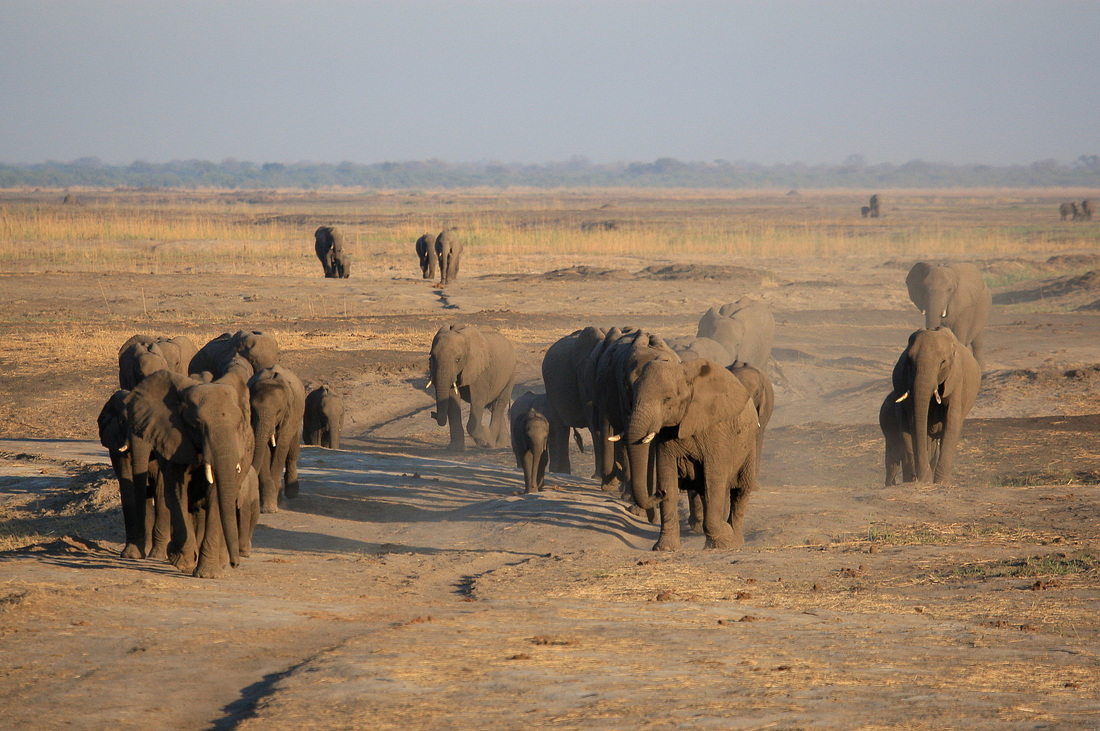|
We reached out to the winning filmmakers from our Elephant International Film Festival and asked them five questions about the experience of creating their films. What inspired you to make this film? Mike Holding: "Unlike most of Africa, elephants in Botswana are potentially threatened by high numbers. AfriScreen decided to make this film after working with Dr Mike Chase, a Botswana scientist, who was busy trying to solve the elephant bottleneck by identifying natural corridors, and finding ways to allow elephants out of Botswana and into neighbouring countries where habitat is ideal. Mike Chase is totally dedicated to helping Botswana’s elephants, and we felt his story was inspirational enough to warrant embarking on the film." Were there any particularly meaningful moments or experiences in the process? Mike Holding: "Working among elephants is always special, and being able to traverse the length and breadth of Botswana following elephant movements to make the film was a real privilege. Perhaps the climax moments were Mike’s re-discovery of the elephant “Max” who had been missing for the longest time, and the exhilarating moment when each of the collared elephants had their collars removed, striding back to the wild having gathered immense amounts of precious data for Mike Chase’s research. As Dr Chase often recounts “what better way, than to allow elephants to show US which routes they follow, which pathways they use, and where the corridors need to be?”. Truly a fine collaboration between man, technology and a few study animals which paves the way forward for Botswana’s elephants. Witnessing first hand how this research could be the saviour of these elephants was definitely inspirational." Describe some of the challenges? Mike Holding: "Botswana is a large and wild country. There are few roads, and almost no facilities in vast tracts of wilderness. Certainly it was challenging and exciting spending many weeks in the wilderness, following the elephant’s story. But that’s what we love to do, and its never a hardship. Elephants move quickly and its certainly a challenge to stay with one particular herd through incredible dense bush, capturing unique moments in their story. Perhaps the biggest challenge was in the edit – we filmed so many elements for the story, the elephants showed us much of the detail of their lives which we captured on camera, that it was really hard to narrow it all down into a one hour film." What are you working on now? Mike Holding: "Another, much bigger film about Botswana's elephants we love and the region’s spectacular Okavango Delta. More than that, we can’t say at this stage!" Anything else you would like people to know? Mike Holding: "When it comes to wildlife conservation in general, and elephants in particular, every country, every area, has a unique set of challenges. The more people make themselves aware of the problems elephants face throughout the world, through films like this, through the internet – the better they will be able to lend their voice and their help to saving these magnificent animals, and perhaps more important, the habitat on which they depend." Elephants Without Borders (EWB) has flown many hours with Mike, tracking and looking for elephants in the remote corners of the study area. His perceptive and deep knowledge on the distribution of wildlife are not only an asset to EWB, but makes him one of northern Botswana’s most knowledgeable bush pilots. Mike is dependable and is always willing and ready, volunteering to fly at a moment’s notice. His exceptional tracking skills are invaluable and he miraculously manages to find elephants, which seemingly have disappeared. He is as passionate about wildlife as his cinematography.
0 Comments
Leave a Reply. |
Archives
March 2024
Categories
All
|
Contact UsJackson Wild
240 S. Glenwood, Suite 102 PO Box 3940 Jackson, WY 83001 307-200-3286 info@jacksonwild.org |


 RSS Feed
RSS Feed